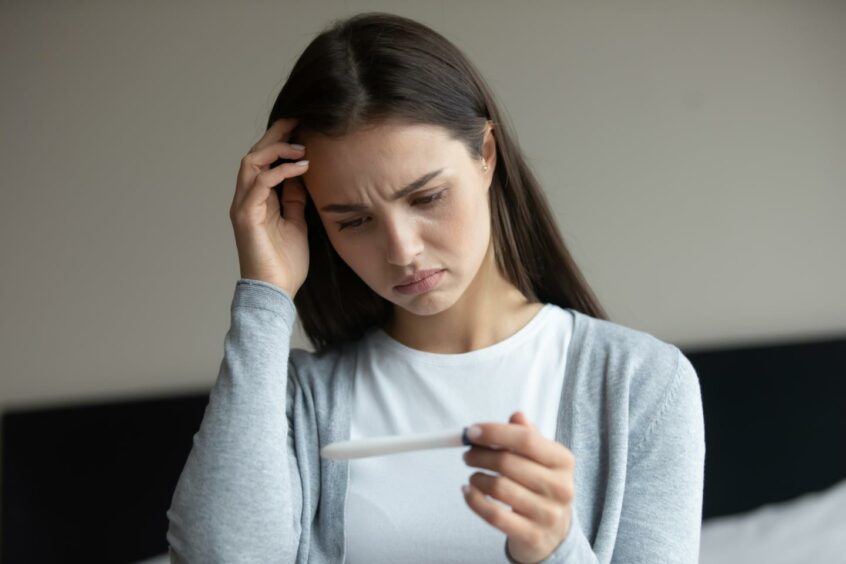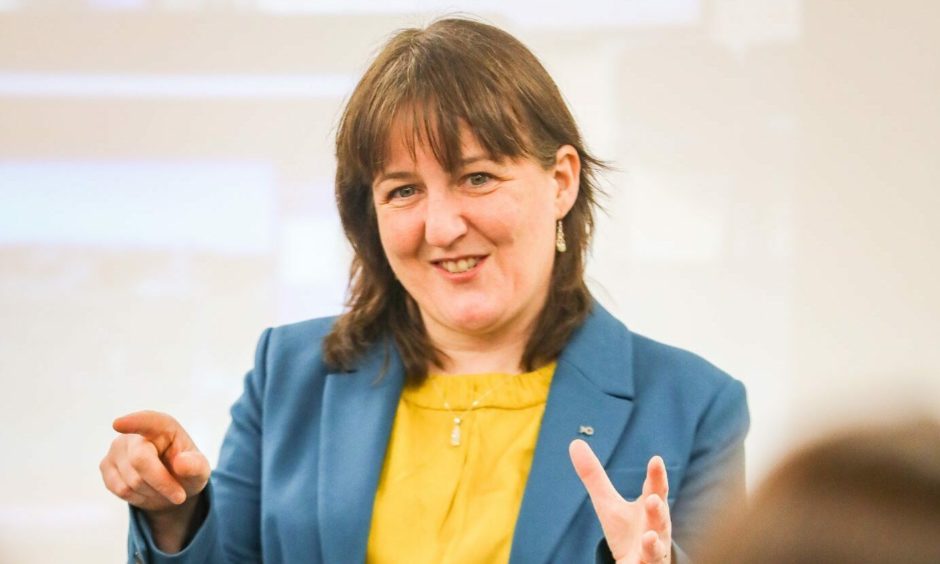Plans have been put forward to improve the detection of endometriosis following MSPs debating the issue in parliament.
Women in Scotland currently wait an average of eight and a half years to be diagnosed with the painful gynaecological disorder, which causes tissue to grow outside the uterus.
This often means they spend many years unsure why they are in extreme pain or being misdiagnosed with other conditions, such as appendicitis.
Endometriosis UK has since launched a report commissioned, by the Scottish Government, which outlines the problems and how they can be resolved.
Research conducted by the charity found that the base level of care “is not currently being met”.
As a result, it’s essential that the “relationship development between healthcare services through Managed Clinical Networks” are facilitated to ensure “smoother referrals”.
Additionally, the report emphasises the need for increased education.
This was aimed at primary and secondary care levels, with the analysis showing “both GPs and non-specialist gynaecologists needing more education on the condition”.

The investment of “endometriosis awareness” was recommended via a public health campaign and improved menstrual wellbeing education in schools and educating school nurses.
Personal and professional impact
The report highlighted the impact the condition is having on the sufferers’ romantic relationships.
When asked how the condition affected their intimate relations or partnerships, 51% said it had a negative impact and 43% reported an extreme negative impact
Almost all respondents suffered mental health issues with 53% saying it had a negative impact and 42% admitting to an extreme negative impact.

Most women had an extremely negative or negative experience in their education or career opportunities as a result of endometriosis.
Severe pain and fertility struggles
The report details how common the crippling symptoms of endometriosis were among respondents:
- Pelvic pain – 95%
- Fatigue – 93%
- Heavy menstrual bleeding – 86%
- Painful bowel movements – 84%
- Pain during or after sex – 83%
- Difficulty getting pregnant – 83%
- Urinary symptoms – 60%
Endometriosis UK believes that 100,000 women in Scotland have endometriosis.
It’s estimated that the disorder currently costs the UK economy £8.2 billion per year.
The report showed that 49% are in pain most days and, as a result, the prescription of painkillers is at a high level.
The majority of 51% reported using painkillers most of the time and 29% said they used it most months.
‘Make a meaningful difference’
Maree Todd, minister for women’s health, said in a statement: “This important research will help us in our goal to make a meaningful difference to women whose lives are blighted by endometriosis.
“Progress is already under way to implement an Endometriosis Care Pathway to be adopted across Scotland to support healthcare professionals to recognise the symptoms and provide a timely response.
“We continue to work with Public Health Scotland and partners to identify gaps in national data on gynaecology services.”
Emma Cox, chief executive of Endometriosis UK, added: “We welcome the Scottish Government’s commitment to drive down waiting times and improve endometriosis care.
“The average of eight and half years – and in many cases, much longer – it takes those in Scotland to get a diagnosis is unacceptable.
“Even once diagnosed, many with endometriosis are not able to get the care they need, including access to endometriosis specialist centres.
“In commissioning this report the Scottish Government has demonstrated that it understands the need to improve endometriosis awareness, diagnosis and care.”
Read more:
Dopesick gets it right on OxyContin dangers – luckily I lived to tell the tale
Endometriosis inquiry presents ‘real opportunity’ to improve support for 1.5 million sufferers


